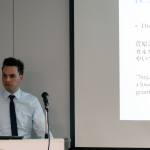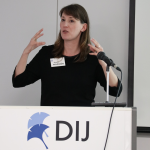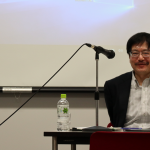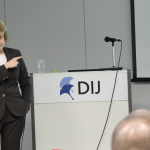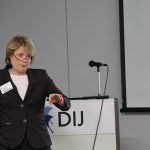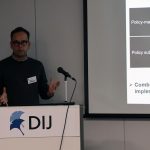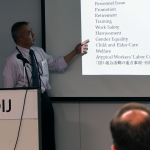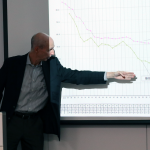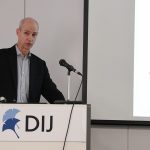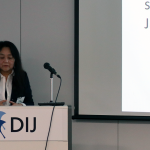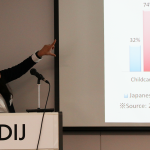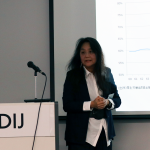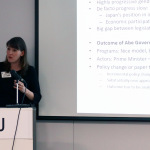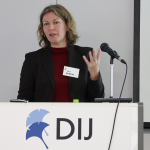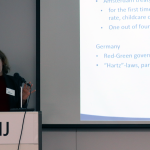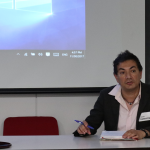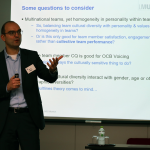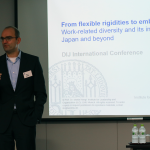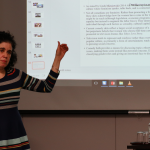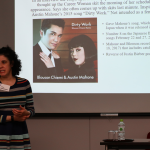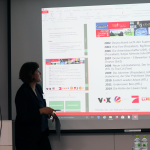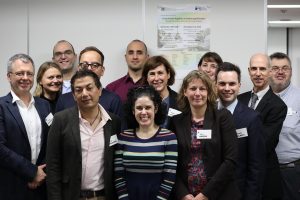
ダウンロード
Co-organizer
Supported by

Information
Further details and an audio podcast of the day 2 keynote (DIJ Forum) are available here.
DIJ International Conference
From Flexible Rigidities to Embracing Diversity? - Work-Related Diversity and its Implications in Japan and Beyond
2017年11月30日 - 2017年12月1日
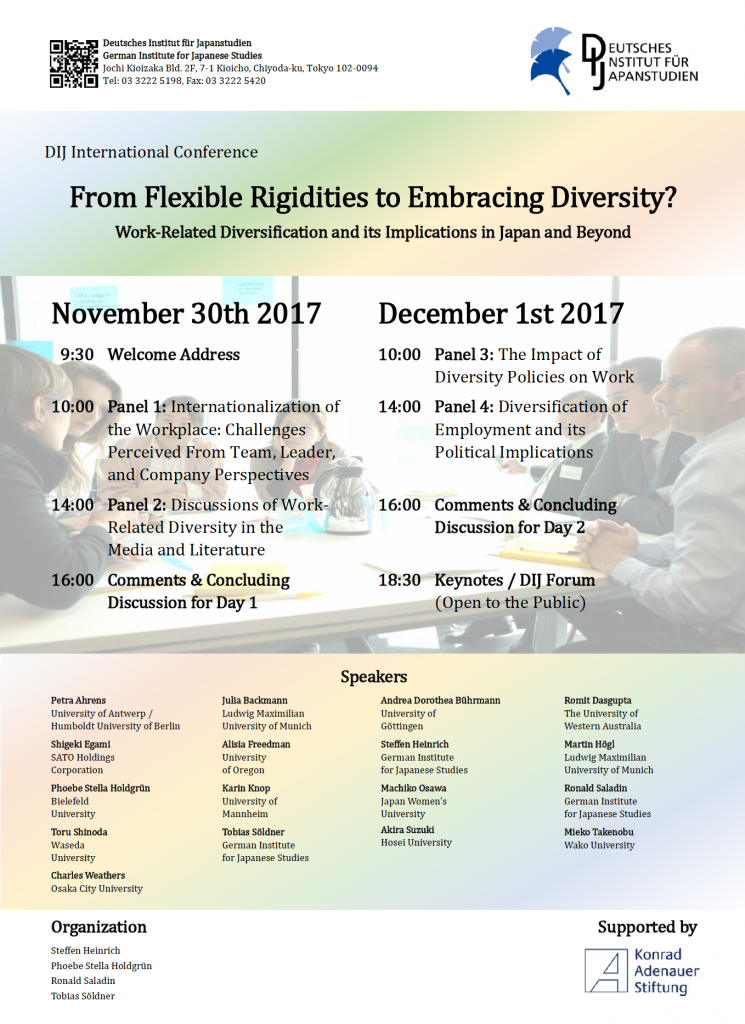 Once hailed as an integral part of the “flexible rigidities” (Dore 1986) of the Japanese economy that allowed for swift adaptation to economic and technological change as well as for a high level of social and job security for workers, standard employment in Japan is increasingly criticized for cementing a specific form of the male breadwinner model. Long working hours, frequent rotations within the firm and a hiring process that is almost exclusively tailored towards young male Japanese, however, risk to marginalize any worker who does not meet these requirements. At the same time diversity, promising significant changes to the organization and perception of work, has become a major topic in Japan as well as in other highly industrialized countries.
Once hailed as an integral part of the “flexible rigidities” (Dore 1986) of the Japanese economy that allowed for swift adaptation to economic and technological change as well as for a high level of social and job security for workers, standard employment in Japan is increasingly criticized for cementing a specific form of the male breadwinner model. Long working hours, frequent rotations within the firm and a hiring process that is almost exclusively tailored towards young male Japanese, however, risk to marginalize any worker who does not meet these requirements. At the same time diversity, promising significant changes to the organization and perception of work, has become a major topic in Japan as well as in other highly industrialized countries.
In the Japanese case, the government appears keen to stress that diversity is something desirable. Indeed, female labour market participation has risen considerably in recent years, and a growing influx of foreign workers and investors has made firms more international and the workforce more diverse. Yet, it remains unclear to what extent the Japanese conception of work-related diversity will transform the rigidities of standard employment practices rather than simply adding new forms of work – and how far, on the other hand, it is affected by existing patterns and practices. This begs the question – equally relevant in Japan and elsewhere – whether the current processes of growing diversity fundamentally change established work practices and to what extent they yield opportunities and risks for business, workers, politics and society at large.
Work-related diversity is a concept that lends itself to a wide range of discourses. It applies to processes of differentiation between worker groups, e.g. in regard to individual backgrounds, employment structures, or changing aspirations with regard to career and life goals. However, expectations what diversity means are often contradictory, and the implications are not always clear. While it is frequently argued that well managed diversity can have a positive influence on motivation, performance and satisfaction of employees, ultimately improving the innovative potential of whole organizations or even society, a more critical reading holds that more diversity may mean more heterogeneity. More heterogeneity in turn is argued to accentuate difference and thus increase the potential for contention and disintegration. Whether work-related diversity is perceived as an opportunity or a risk thus depends on a variety of factors. Yet, our understanding of these processes and their heterogeneous implications for highly developed societies is still limited.
This conference brings together international experts and scholars from several academic disciplines who analyze processes of work-related diversity in Japan and other advanced economies. By combining a range of approaches and by comparing countries and case studies, the conference seeks to lay the ground for a comprehensive empirical picture of the various facets of work-related diversity in Japan and beyond and how it affects and is affected by established work practices.
In four thematic sessions, work-related diversity will be explored from the perspectives of public and political discourses, institutional frameworks, and individuals and collective actor groups. In particular, we seek to address the following questions:
- What are the main drivers of work-related diversity in politics, society, business and culture?
- How does diversity affect work outcomes, e.g. of multinational teams?
- Which factors determine whether diversity is perceived as a risk or as an opportunity?
- Are there differences in how work-related diversity is reflected in public, political, corporate and cultural discourse in Japan and other countries?
- Does diversity imply a genuine transformation of established work practices or does it resemble what scholars of institutionalism call layering, that is, the addition of new ‘options’ while leaving existing practices intact?
The conference is hosted by the German Institute for Japanese Studies (DIJ) in Tokyo, financially supported by the Konrad Adenauer Foundation, and organized by the DIJ research group on Work-related Diversity in Japan: New Risks and Opportunities for Whom? In addition to the four thematic sessions, the conference will include a keynote, and time for discussions on possible future research collaboration and a joint publication.
発表
1日目 2017年11月30日 (木)
9時半
Welcome Address and Introduction
Franz Waldenberger
Director of the DIJ
Thomas Awe
Resident representative of the Konrad Adenauer Foundation
Phoebe Holdgrün
DIJ Diversity research team
10時〜11時半
Panel 1: Internationalization of the Workplace: Challenges Perceived From Team, Leader, and Company Perspectives
Chair:
Phoebe-Stella Holdgrün
Julia Backmann
Ludwig Maximilian University of Munich
Tobias Söldner
German Institute for Japanese Studies
Shigeki Egami
SATO Holdings Corporation
11時半〜14時
Lunch Break
14時〜15時半
Panel 2: Discussions of Work-Related Diversity in the Media and Literature
Chair:
Steffen Heinrich
German Institute for Japanese Studies
Karin Knop
Mannheim University
Ronald Saladin
German Institute for Japanese Studies
Alisa Freedman
University of Oregon
15時半〜16時
Coffee Break
16時〜17時半
Comments & Concluding Discussion of Day 1
Discussant for Panel 1:
Martin Högl
Ludwig Maximilian University of Munich
Discussant for Panel 2
Romit Dasgupta
The University of Western Australia
18時〜20時
Dinner reception for all speakers and invited guests
2日目 2017年12月1日 (金)
10時〜11時半
Panel 3: The Impact of Diversity Policies on Work
Chair:
Ronald Saladin
German Institute for Japanese Studies
Petra Ahrens
University of Antwerp/Humboldt-University Berlin
Phoebe Holdgrün
Bielefeld University
Machiko Osawa
Japan Women’s University
11時半〜14時
Lunch Break
14時〜15時半
Panel 4: Diversification of Employment and Its Political Implications
Chair:
Tobias Söldner
German Institute for Japanese Studies
Charles Weathers
Osaka City University
Toru Shinoda
Waseda University
Steffen Heinrich
German Institute for Japanese Studies
15時半〜16時
Coffee Break
16時〜17時半
Comments & Concluding Discussion of Day 2
Discussant for Panel 3:
Andrea Bührmann
University of Göttingen
Discussant for Panel 4:
Akira Suzuki
Hosei University
18時半〜20時
Keynote / DIJ-Forum (open to the public)
For further details and our audio podcast please visit: DIJ FORUM: From Flexible Rigidities to Embracing Diversity? Work-related Diversity and its Implications in Japan and Beyond
Mieko Takenobu
Wako University
Andrea Bührmann
University of Göttingen
